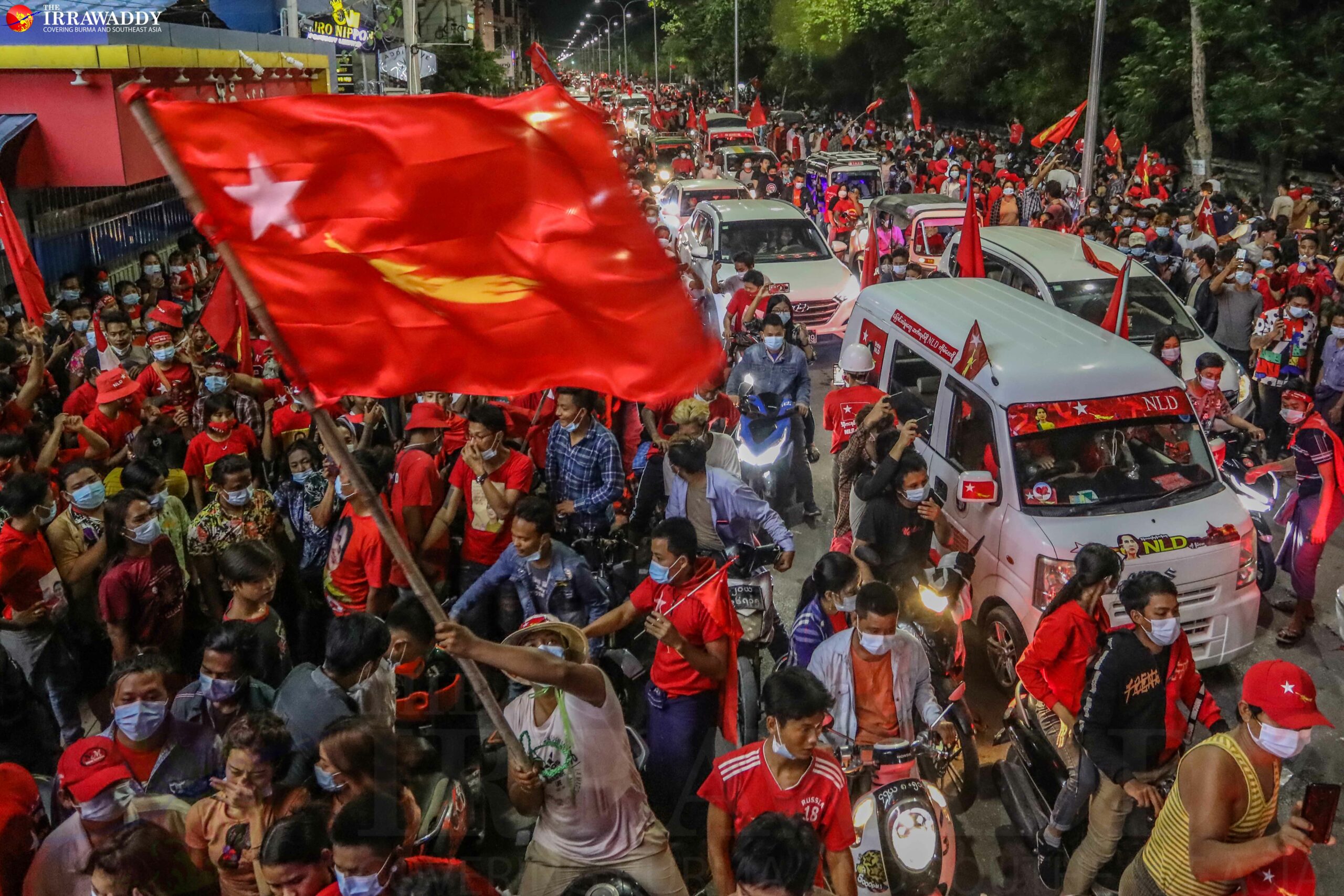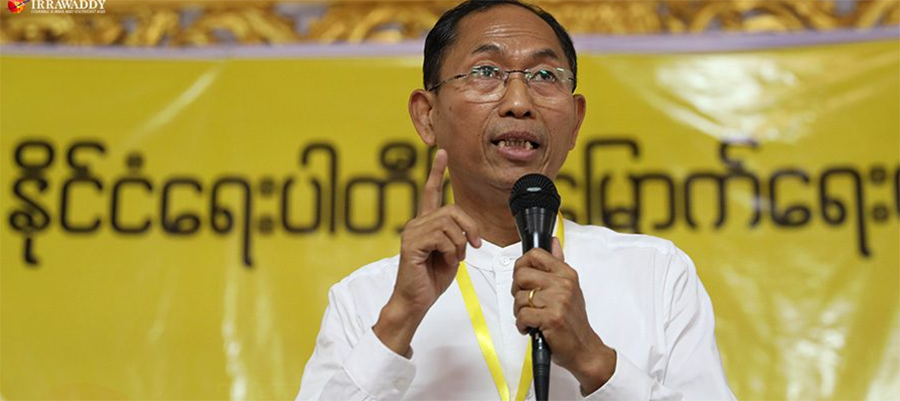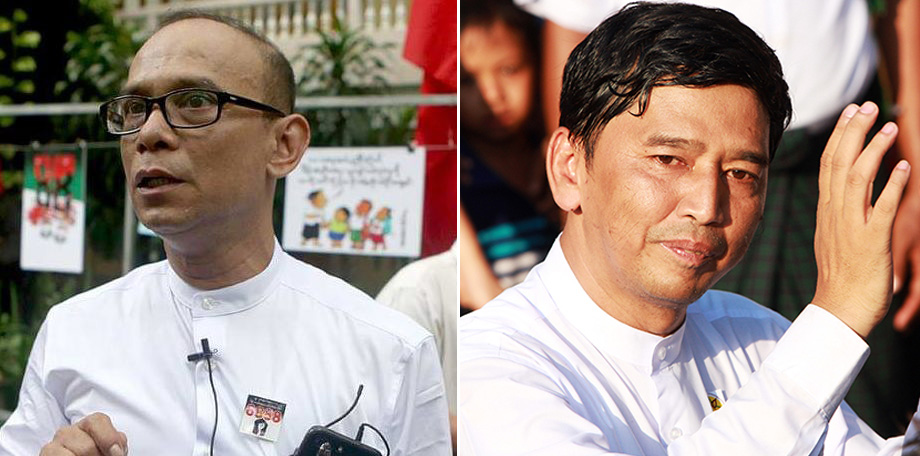Myanmar’s generals may be delusional if they believe that their moves to ban the National League for Democracy (NLD) will put an end to the pro-democracy, anti-military movement. The NLD is not and never was just a political party among many. “Our party grew out of the people so it will exist as long as people support it,” its leader Daw Aung San Suu Kyi said when she appeared in court on May 24, and then speaking through one of her lawyers, U Khin Maung Zaw, as she was not allowed to make any public statements on her own.
That reminded me of what Daw Aung San Suu Kyi told me the first time I met her in Yangon in February 1989. She and an NLD delegation from party headquarters had just returned from a trip down to the Irrawaddy Delta where among the towns they visited was one that was accessible only by river boat. “I was so surprised when we got there,” Daw Aung San Suu Kyi said, “because the first thing the people wanted to show us was the local, newly opened NLD office. And we didn’t even know that there was an NLD office in that town.”
Inside the office—only a room in a smallish concrete building—they were met by the local chairman, a middle-aged man who was seated behind a tattered wooden desk. A peacock flag—the symbol of the NLD—hung on the wall behind him beside framed portraits of Daw Aung San Suu Kyi’s father, General Aung San, and Thakin Kodaw Hmaing, the poet and writer who played an important role in fostering the movement for independence from Britain in the 1920s and 1930s.
And that is how the NLD was born, out of the August-September 1988 uprising for democracy and then, in the states and regions, often without any assistance from the center in Yangon. It embodied the people’s desire for a better, democratic future. Therefore, it didn’t matter who the NLD’s candidates were when it contested its first election in May 1990 and scored a landslide victory. The assembly that had been elected was never convened and NLD members and activists were hunted down, imprisoned and tortured—not to extract information, but as punishment for opposing military rule. At least 20 MPs-elect fled to Thailand and India and formed a government in exile called the National Coalition Government of the Union of Burma (NCGUB).

The problem, though, was precisely that the names of candidates and others were not important. Only Daw Aung San Suu Kyi’s was and still is. She may have been vilified internationally—but not at home in Myanmar—for her stand on the alleged genocide of the Muslim Rohingya, which she denies, and for being weak on minority rights in general. And the media did not have an easy time when the NLD was in government from 2016-2021. But without her, there would never have been such a strong pro-democracy movement in Myanmar; she and she alone has come to personify the desire of the people to live in a society free from oppression and underdevelopment.
All that in turn leads to an even bigger problem: She turned 76 in June and may not be able to be that symbol for much longer. And she has, her domestic critics say, neglected to let a second generation of leaders rise to prominence in the NLD. She micromanages party matters surrounded by people who seldom if ever provide her with suggestions and useful, constructive criticism. She has fallen out with several people who were once close to her, which does not bode well in a situation where unity and teamwork should be of utmost importance.
Perhaps in an attempt to take advantage of those less-than-complimentary assessments of her personality, the junta is now telling foreigners, especially Japanese and other Asians, that she is stubborn and unwilling to compromise. No one questions the fact that she is stubborn; that has in some difficult situations been her strength, because she has refused to surrender to the demands of the Tatmadaw (Myanmar’s military). But it is gross hypocrisy for the leaders of the Tatmadaw, who have never hesitated to open fire on peaceful demonstrators asking for political reforms, to accuse her of being unreasonable and uncompromising.
In a more constructive manner, many younger people especially are searching for a way forward, and that is not a return to old ideas of a “third force” that mysteriously would emerge as an alternative to Daw Aung San Suu Kyi’s NLD and the military. As independent researcher Mon Mon Myat pointed out in this publication on June 17, the “third force” argument was first put forth by Dr. Kyaw Yin Hlaing more than 10 years ago. In an essay titled Political Impasse in Myanmar, he said that the people must look beyond Daw Aung San Suu Kyi and her NLD to achieve democracy and, instead, work within the system.
That sounded reasonable and could have worked in other authoritarian states. But, as Mon Mon Myat also pointed out, not in Myanmar. The effort failed miserably because of the military’s unwillingness to compromise and inability to listen to voices other than its own. And those advocating the third-force argument ended up being called “military stooges” by other pro-democracy activists. Significantly, a breakaway faction from the NLD called the National Democratic Force (NDF), which tried to be a “third force” and took part in the 2010 election, won a meager 12 seats in both assemblies. The NDF split shortly afterwards and did not win a single seat in the 2015 election.
Another attempt at forging a “third force” was made in 2018 by Ko Ko Gyi, a former political prisoner and a veteran of the 1988 uprising for democracy, who together with some fellow longtime activists founded the People’s Party. But it was equally unsuccessful in challenging the NLD. The People’s Party split after the coup when Ko Ko Gyi, to the dismay of many, made the fateful decision of participating in a junta-organized meeting in May to prepare for elections “within two years”, as Senior General Min Aung Hlaing promised when he seized power and ousted the democratically elected government. The bitter truth is that there never was, and still is, no room for a “third force” in Myanmar party politics.

Past experience shows that it would be necessary to look beyond Myanmar’s rather peculiar brand of party politics. The NLD without Daw Aung San Suu Kyi would not be a viable force for democracy, and the party may be banned anyway, with its leader ending up behind bars on trumped-up charges of corruption and breaching colonial-era national security laws. But the generals have also failed to realize that banning the NLD or, as they did in the 1990s and early 2000s, shutting down its offices and arresting local and national leaders, is not going to kill Myanmar’s pro-democracy movement. It will only take other forms and shapes.
The decade before this year’s coup gave birth to what is called Generation Z—social media- and internet-savvy young people who organized the first waves of protests against the coup. For them, it is not only, and not even primarily, about the NLD and Daw Aung San Suu Kyi, but how the coup has deprived them of the freedom of expression and the lifestyle they enjoyed after the country opened up to the outside world in 2012. Using internet resources, they continue to stay in touch and expose police as well as military brutality.
Just as many activists did in the wake of the bloody suppression of the 1988 uprising, some have gone to the border areas where ethnic rebels are providing them with military training. But in another parallel with 1988, the likelihood of a military victory over the much better armed Tatmadaw seems an impossible dream. The events of 1988 and the 1990 election also led to the formation of an alternative government, the NCGUB. This time, a similar entity, the National Unity Government, is fighting a very similar uphill battle for recognition. Old-timers like myself feel a sense of déjà vu when we observe such post-coup developments. We have seen it before, and how it failed.
But there is hope. Generation Z may be without any known leaders, but those participating in the movement have shown remarkable strength, endurance and determination to achieve political change. They are younger, fresher and certainly more innovative than the aging leadership of the NLD. A decade of freedoms, which Myanmar had not experienced since the early 1960s, also led to the emergence of a nascent but thriving civil society consisting of journalists, women’s rights campaigners, youth activists and NGO workers. They have been forced underground since the coup, or are in hiding in safe houses or in areas controlled by the ethnic rebels. But they are still full of energy and eager to do whatever can be done under military rule.
New leaders could emerge from within those ranks, as they did when Aung San and his young comrades founded the independence movement in the 1930s, or during the 1988 uprising when another generation of activists came to the fore along with the original, spontaneously formed NLD. Ko Ko Gyi may have lost his former popularity but there are others, like Min Ko Naing and Mya Aye, who are still well-respected members of the pro-democracy movement.

But for such a movement to succeed, there would have to be a similar development among younger military officers who would dare to oppose the dinosaurs in their leadership. Sadly, however, there has so far been no sign of the emergence of a faction of officers who realize that Myanmar society has changed irrevocably—and that gunning down protesters in the streets is not the way to run a country. Nonetheless, if such dissent within the ranks does not materialize, Myanmar will once again, as it did after the 1988 uprising, be facing years of rule by officers who are more interested in protecting their privileges and positions of absolute power than seeing the country prosper.
You may also like these stories:
Myanmar Junta Jails Activist’s Wife and Daughter for 3 Years
Myanmar Junta Says it Can’t Cope With Rising COVID-19 Cases
No Security Present When Myanmar Military Raided Daw Aung San Suu Kyi’s House
















